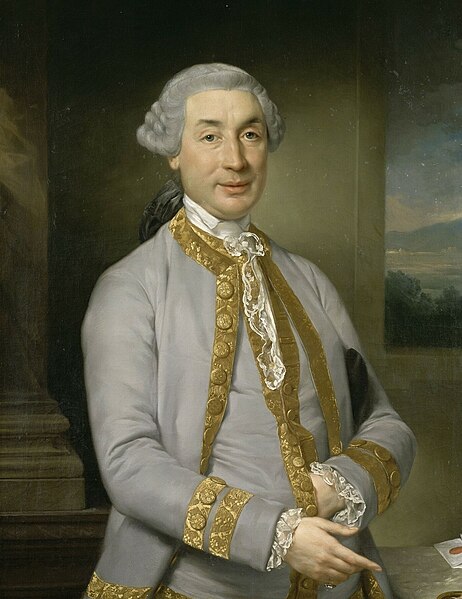The coup d'état of 18 Brumaire brought Napoleon Bonaparte to power as First Consul of France. In the view of most historians, it ended the French Revolution and would soon lead to the coronation of Napoleon as emperor. This bloodless coup d'état overthrew the Directory, replacing it with the French Consulate. This occurred on 9 November 1799, which was 18 Brumaire, Year VIII under the short-lived French Republican calendar system.
General Bonaparte during the coup d'état of 18 Brumaire in Saint-Cloud, painting by François Bouchot, 1840
Lucien Bonaparte, President of the Council of Five Hundred, who engineered the coup that brought his brother to power
Exit liberté à la François (1799), caricature by James Gillray depicting Napoleon and his grenadiers driving the Council of Five Hundred from the Orangerie
Napoleon Bonaparte, later known by his regnal name Napoleon I, was a French emperor and military commander who rose to prominence during the French Revolution and led successful campaigns during the Revolutionary Wars. He was the leader of the French Republic as First Consul from 1799 to 1804, then of the French Empire as Emperor of the French from 1804 until 1814, and briefly again in 1815. His political and cultural legacy endures as a celebrated and controversial leader. He is considered one of the greatest military commanders in history and his wars and campaigns are still studied at military schools worldwide. However, historians still debate the degree to which he was responsible for the Napoleonic Wars, in which between three and six million people died. Napoleon brought modernizing reforms to France and Western Europe and stimulating the development of nation states. He also sold the Louisiana Territory to the United States in 1803, doubling the latter's size. However, his mixed record on civil rights and exploitation of conquered territories adversely affect his reputation.

The Emperor Napoleon in His Study at the Tuileries, 1812
Napoleon's father, Carlo Buonaparte, fought for Corsican independence under Pasquale Paoli. After their defeat, he eventually became the island's representative to Louis XVI's court.
Statue of Bonaparte as a schoolboy in Brienne, aged 15, by Louis Rochet [fr] (1853)
Bonaparte, aged 23, as lieutenant-colonel of a battalion of Corsican Republican volunteers. Portrait made in 1835 by Henri Félix Emmanuel Philippoteaux






![Statue of Bonaparte as a schoolboy in Brienne, aged 15, by Louis Rochet [fr] (1853)](https://upload.wikimedia.org/wikipedia/commons/thumb/3/3d/Bonaparte_%C3%A9colier_IMG_6712.jpg/600px-Bonaparte_%C3%A9colier_IMG_6712.jpg)
